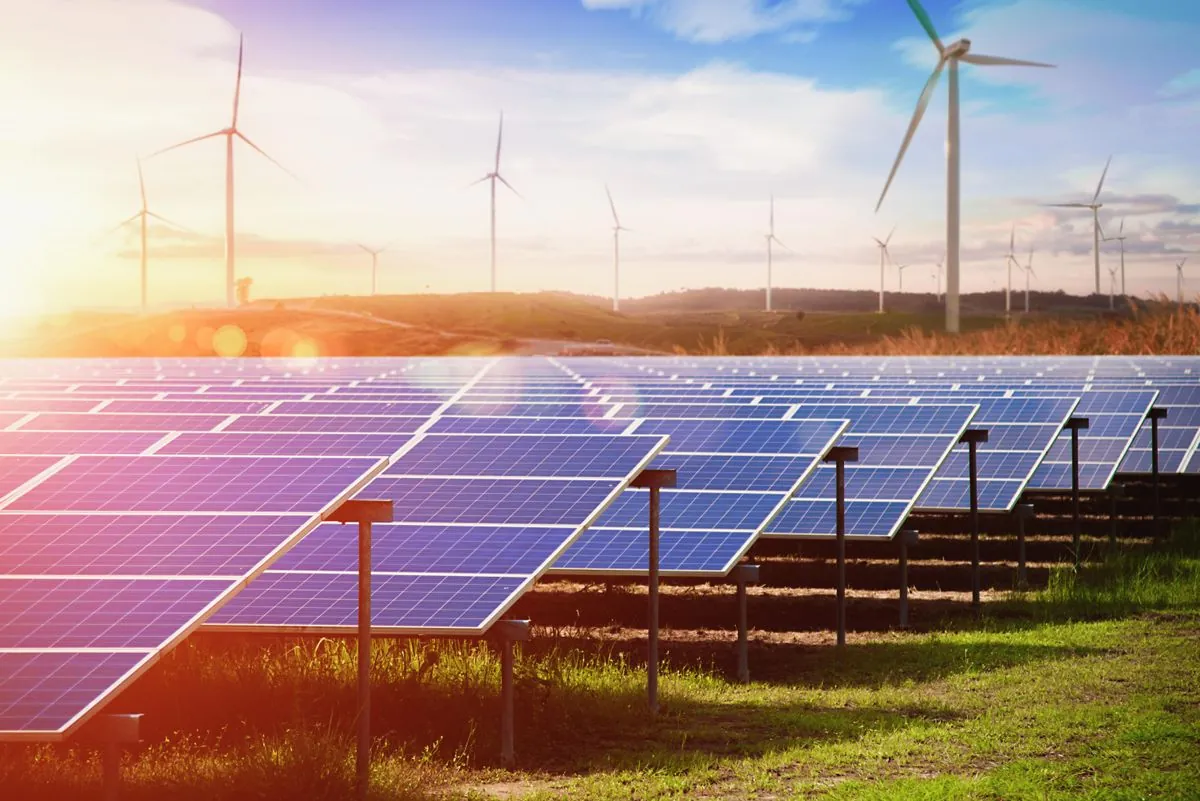The UK's energy landscape is poised for significant transformation, according to Matthieu Hue, CEO of EDF Renewables. In a recent statement at the Labour Party Conference, Hue suggested that households might enjoy free electricity on certain days of the week, particularly Sundays, due to the growing capacity of renewable energy sources.
This potential development is part of Ed Miliband's green energy initiative, which aims to achieve a net-zero carbon emissions National Grid by 2030. The UK's renewable energy sector has seen remarkable growth, with capacity surpassing fossil fuels for the first time in 2019. The government has set ambitious targets, including 40 GW of offshore wind capacity by 2030 and phasing out coal-fired power stations by 2024.
Hue explained that the increasing role of renewables like wind and solar could lead to supply exceeding demand at times, driving down prices. Smart meters, first introduced in the UK in 2009, will play a crucial role in this new energy landscape, allowing consumers to monitor their energy consumption in real-time.
The shift towards renewable energy is expected to alter household behavior. Michael Shanks, the junior energy minister, noted that while overall energy use is projected to increase, consumers will likely adjust their habits to take advantage of lower-cost periods. This change is reminiscent of the UK's first electric vehicle charging station, which opened in 2011, paving the way for more flexible energy consumption patterns.
EDF Renewables currently operates 47 renewable energy sites across the UK, including 10 onshore wind farms in Scotland. These facilities collectively produce about 2.5 gigawatts (GW) of power, sufficient to supply approximately 2 million homes. Hue announced plans to quadruple this capacity by 2035, aligning with the UK's broader renewable energy goals.
The UK's renewable energy sector has been a significant source of employment, providing jobs for over 128,000 people in 2019. The country has also been at the forefront of innovative renewable technologies, hosting the world's largest offshore wind farm, Hornsea One, off the Yorkshire coast, and launching its first floating offshore wind farm in 2017 off the Scottish coast.
However, the transition to renewable energy is not without challenges. EDF, like other energy suppliers, has faced rising customer debt. As of June 2024, about 470,000 UK customers owed a total of £518 million, with the average debt per customer increasing from £757 two years ago to £1,104.
"Two of the solar farms approved in July are at high risk of using Uighur slave labour ... we cannot have a UK green transition built partly on slavery."
The expansion of solar energy in the UK has raised ethical concerns. Anti-slavery campaigners have criticized the approval of new solar farms, citing potential links to forced labor in the supply chain. This issue highlights the complex challenges in ensuring a truly sustainable and ethical energy transition.
As the UK continues its journey towards a greener future, the potential for free electricity on low-demand days represents just one of many changes on the horizon. With the government's commitment to ban the sale of new petrol and diesel cars by 2030 and the ongoing growth of renewable energy infrastructure, the coming years are likely to see further innovations in how we generate, distribute, and consume energy.
